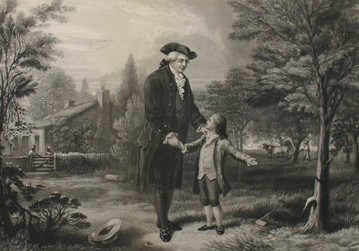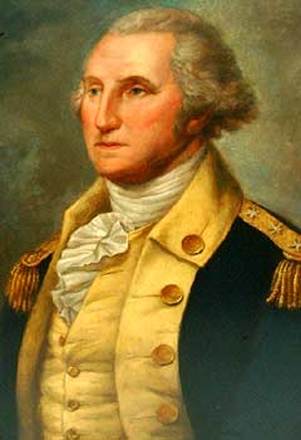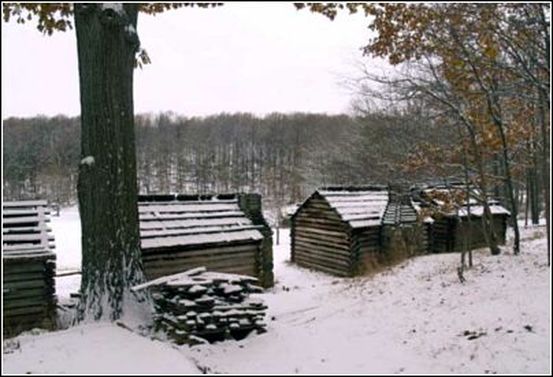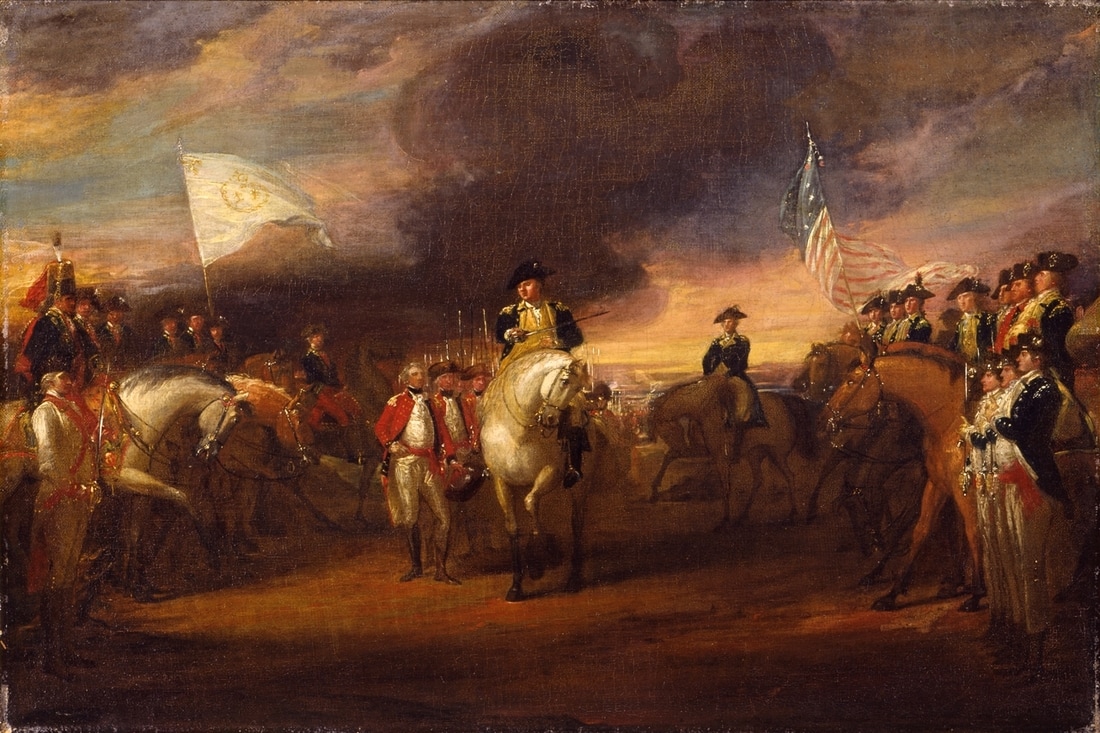 George Washington's famous boyhood confession regarding hatchet and cherry tree was pure fabrication by biographer Mason Locke Weems, but the tale endowed our first president with an inalienable reputation for honesty. It turns out, George knew when and how to tell a good lie. "Father, I Can Not Tell a Lie: I Cut the Tree," engraving by John C. McRae, 1867. Without Washington's skill at deception, the ragtag patriots might never have beaten the superior fire and man power of the British. In the summer of 1780, General Washington and his rebel army faced serious trouble. The deprivations of Valley Forge are legendary, but many historians consider the winter in 1779-1780 to be the most severe of the 18th century. Washington’s army, shrinking due to desertion and soldiers refusing to reenlist, camped at Morristown, New Jersey.  National Park Service Museum Collection National Park Service Museum Collection With the flowering of spring came the British victory at Charleston, South Carolina. The worst patriot defeat of the war, with the capture of 3000 men and large amounts of munitions and equipment. Washington knew a fleet had left France, sailing to his aid, but not when or where the reinforcements would arrive. British General Sir Henry Clinton and his army of 10,000 sat fat and happy in New York City, while the northern patriot army lay scattered in New England. Lacking muscle and might, Washington turned to mind games and deception. According to a CIA website, "General Washington was more deeply involved in intelligence operations than any American general-in-chief until Dwight Eisenhower during World War ll." He concocted a ruse meant to fool General Clinton into believing the French fleet was arriving to help the colonists liberate Canada from the British. Washington and General Lafayette prepared a document written in French purporting to rally Canadians to the American cause. "It may indeed be well to throw out an idea that you are to command the corps of American troops destined to cooperate with the French armament," he wrote Lafayette. "The more mystery in this business the better. It will get out and it ought to seem to be against our intention.” As it turned out, the document was passed to the British by an American commander in Philadelphia--Benedict Arnold, whose traitorous behavior actually did Washington a favor. More significant was Washington's duplicity a month later when the French fleet landed in Rhode Island. When he learned through his spy network that General Clinton was quitting New York to engage the French, Washington wrote letters describing plans for a full-fledged attack on New York. Planting documents with known British agents got the word to Clinton, who came sailing back to New York allowing the newly arrived French to rendezvous unhindered with Continental forces. Surrender of Lord Cornwallis at Yorktown, John Trumbull, Courtesy North Carolina Museum of Art
The next year Washington used similar techniques to throw Clinton off and allow the patriots to march south unmolested and lay siege to Yorktown, culminating in the British surrender and freedom for the colonies. Lucky for us, our first president was not opposed to few untruths for a good cause. Comments are closed.
|
I'm fascinated to discover little-known history, stories of people and events that provide a new perspective on why and how things happened, new voices that haven't been heard, insight into how the past brought us here today, and how it might guide us to a better future.
I also post here about my books and feature other authors and their books on compelling and important historical topics. Occasionally, I share what makes me happy, pictures of my garden, recipes I've made, events I've attended, people I've met. I'm always happy to hear from readers in the blog comments, by email or social media. Archives
September 2023
Categories
All
|


